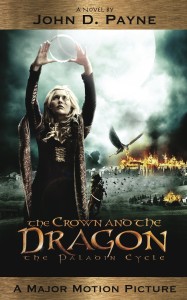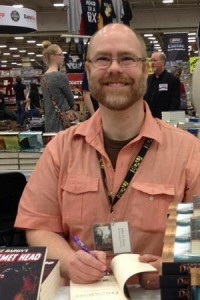The thing about tension is, it wants to be released. This is true not just for bowstrings drawn back to the ear, unresolved chords, or tectonic plates grinding up on each other in the world’s most excruciatingly slowed-down dance club. All of life, every life, is about the release of tension.
Sometimes the release comes quickly. Sometimes the stresses just continue to build, ratcheting up ever higher, long past what we would have believed to be possible. (On a possibly related note, it took me eleven years to earn my doctorate.)
But all of us are bullets, shots in the dark. We begin explosively, super-charged with unimaginable kinetic energy– as every parent of a small child knows. Over time, we lose it. Our trajectories curve groundward, our orbits decay, and we fall.
It is in this sense that mortality is a coil, in Hamlet’s famous phrasing. Life is a spring, tightly wound. Tension is what keeps it all going, what keeps this whole universe humming along. Sure, we complain about the stresses we endure day after day. But in a way, they’re reassuring. They let us know we’re still here, still kicking, not yet resting in peace.
I’m in no hurry to achieve entropic resolution myself. Oh, I know I’ll get there in time. All of us will. What’s the rush? Yet, on we run. We can’t help it. Tension propels us, speeding us toward that ultimate release.
I think this is true for stories, too. We all know the unbearable agony of being wrenched out of the narrative before we know our heroes are safe. I think that’s why parents grant their children the small mercy of finding a “stopping place” in their book (or game, or show) before they have to come help set the table.
We also know that in the very best stories, you can never find a stopping place. It gets its hooks in you right from the start and doesn’t let you go until the end. “It rips my life away, but it’s a great escape.”
So, how do I make it work for me?
First, take a cue from Dean Wesley Smith and try exercising a little mind control over your readers. Hang those cliffs. Don’t make it easy for them to put your book down.
This doesn’t come naturally for me, but I’ve been experimenting with my preschooler. He wants to hear stories every night, one from mommy and one from daddy. And for the last few months, daddy’s stories have all followed a single hero (Percival Bunny-rabbit) in a continuous narrative, usually cutting off at the moment of maximum tension.
It’s cruel, I know. And every time the boy flops back on his bed with a frustrated groan, or spends the next day begging to hear the end of the story, there’s a part of me that thinks it can’t be good parenting to torture him so.
But another part of me is delighted.
He tells me he prefers stories that have an ending. So every few nights I give him a break and we come to a place where I can pronounce THE END. But the very next night my boy is asking me if we have any “leftover stories.” He can’t wait to find out what his hero is going to do next. And neither can I.
Which is the second way I am trying to make tension work for me: keeping myself in suspense. I don’t like leaving things unfinished. In fact, I’m like Roger Rabbit, positively vibrating with the need for closure.
So I’ve been experimenting on myself, trying to use this tension as a driver. Instead of stopping my writing for the day at a place where I’ve finished my scene and said all I want to, I cut it short and walk away.
The pressure of that incomplete ending, that unfinished chapter, pushes me to get back to the keyboard. And until I do, the untold story is bouncing around in my brain– generating dialogue, action sequences, etc. It itches at my brain, keeps me up at night, kicks me out of bed early in the morning to curl up on the couch with my laptop and punch out the lines that have been running through my head since my last writing session.
The experiment is still young, but it’s had some promising results. I’m really excited. I also am a little anxious, because we’ve got a new baby coming and I know that’s going to turn my whole life upside down (for the third time). And then we have the end of the semester, and then summer (and attendant travel) is going to nuke my schedule, and then we’re going to move.
So even though I’m telling you this works, I really don’t know if I can even keep this up myself. Will my new writing plan survive the month of March, or will it fall casualty to sleep deprivation? Will I find the time to finish my novel, or miss my deadline and maybe miss my chance? What will become of our peerless hero?
Find out next time, in . . .
PERCIVAL BUNNY-RABBIT
AGAINST
THE WORLD CRIME LEAGUE
Coming soon!
John D. Payne lives in Houston with his wife, two sons, and (maybe, by the time this post goes up) his newborn daughter. (Still looking for names, so please feel free to leave your suggestions in the comments.) His hobbies include removing peanut butter and chocolate from the stupid white couches, blowing bubbles for little boys to chop with laser swords, and using a Mickey Mouse doll to do Pharaoh’s part in the Moses story (complete with Mickey voice).
wife, two sons, and (maybe, by the time this post goes up) his newborn daughter. (Still looking for names, so please feel free to leave your suggestions in the comments.) His hobbies include removing peanut butter and chocolate from the stupid white couches, blowing bubbles for little boys to chop with laser swords, and using a Mickey Mouse doll to do Pharaoh’s part in the Moses story (complete with Mickey voice).
John’s debut novel is The Crown and the Dragon. His stories can also be found in magazines and anthologies such as Leading Edge, Tides of Impossibility: A Fantasy Anthology from the Houston Writers Guild, and Dragon Writers: An Anthology. For updates on his writing and stories about his kids, follow him on Twitter @jdp_writes.


